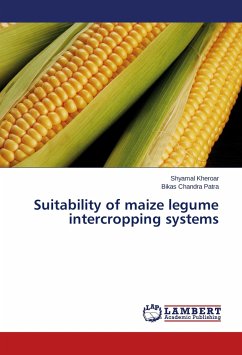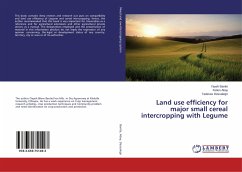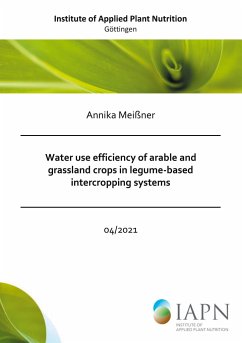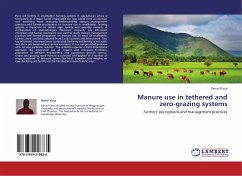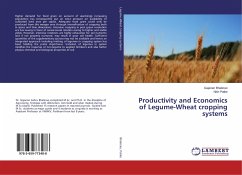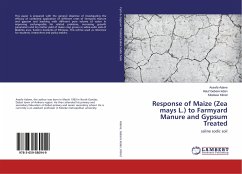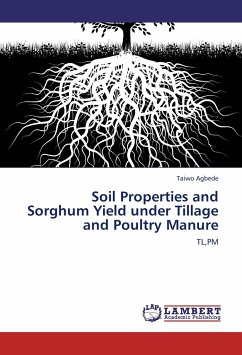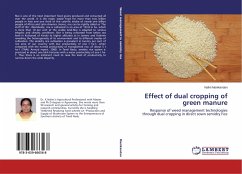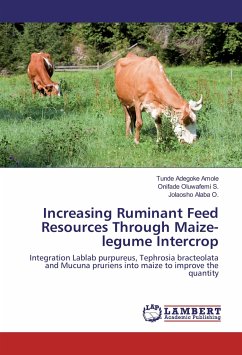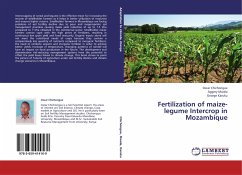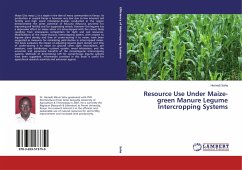
Resource Use Under Maize-green Manure Legume Intercropping Systems
Versandkostenfrei!
Versandfertig in 1-2 Wochen
32,99 €
inkl. MwSt.

PAYBACK Punkte
16 °P sammeln!
Maize (Zea mays L.) is a staple in the diet of many communities in Kenya. Its production in coastal Kenya is however very low due to low inherent soil fertility and high weed infestation.Studies conducted in the region demonstrated the great potential of Mucuna (Mucuna pruriens) for improving soil fertility and for suppressing weeds. However this legume has a depressive effect on maize when it is intercropped with the cereal, likely resulting from interspecies competition for light and soil resources. Modifications of the maize-mucuna intercropping system, with respect to legume plant density ...
Maize (Zea mays L.) is a staple in the diet of many communities in Kenya. Its production in coastal Kenya is however very low due to low inherent soil fertility and high weed infestation.Studies conducted in the region demonstrated the great potential of Mucuna (Mucuna pruriens) for improving soil fertility and for suppressing weeds. However this legume has a depressive effect on maize when it is intercropped with the cereal, likely resulting from interspecies competition for light and soil resources. Modifications of the maize-mucuna intercropping system, with respect to legume plant density and time of under-sowing it to maize, have been suggested as measures for minimizing yield decline in intercropped maize. The book evaluates the impact of adjusting legume plant density and time of under-sowing it to maize on ground cover, light interception, soil moisture, root distribution, nutrient uptake, weed infestation, and the economic and agronomic benefits of the cereal-legume intercropping systems. Methods of determining LER for cereal-forage legume systems have been suggested. Information provided in this book is useful for agricultural research scientists and extension agents.



